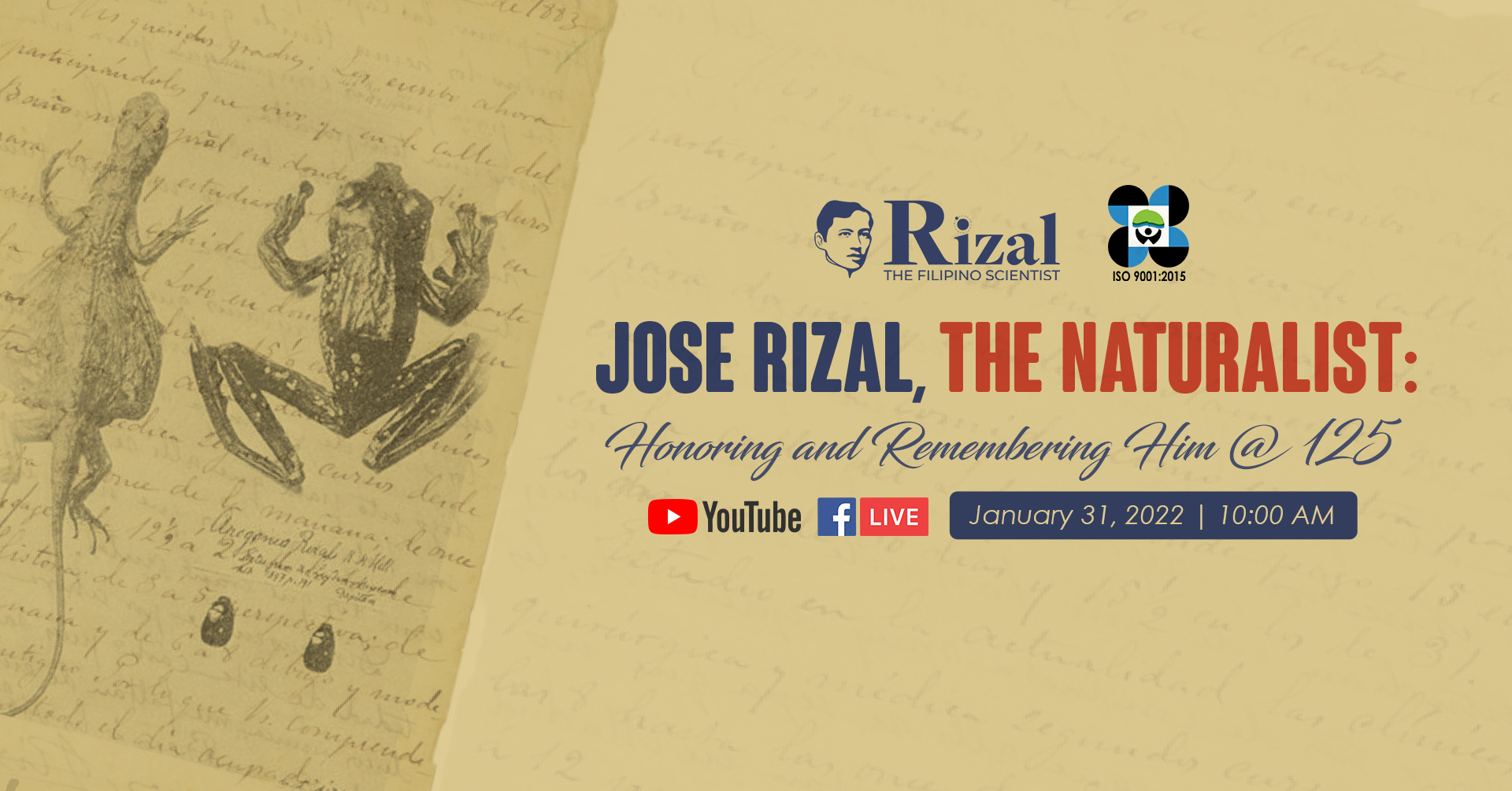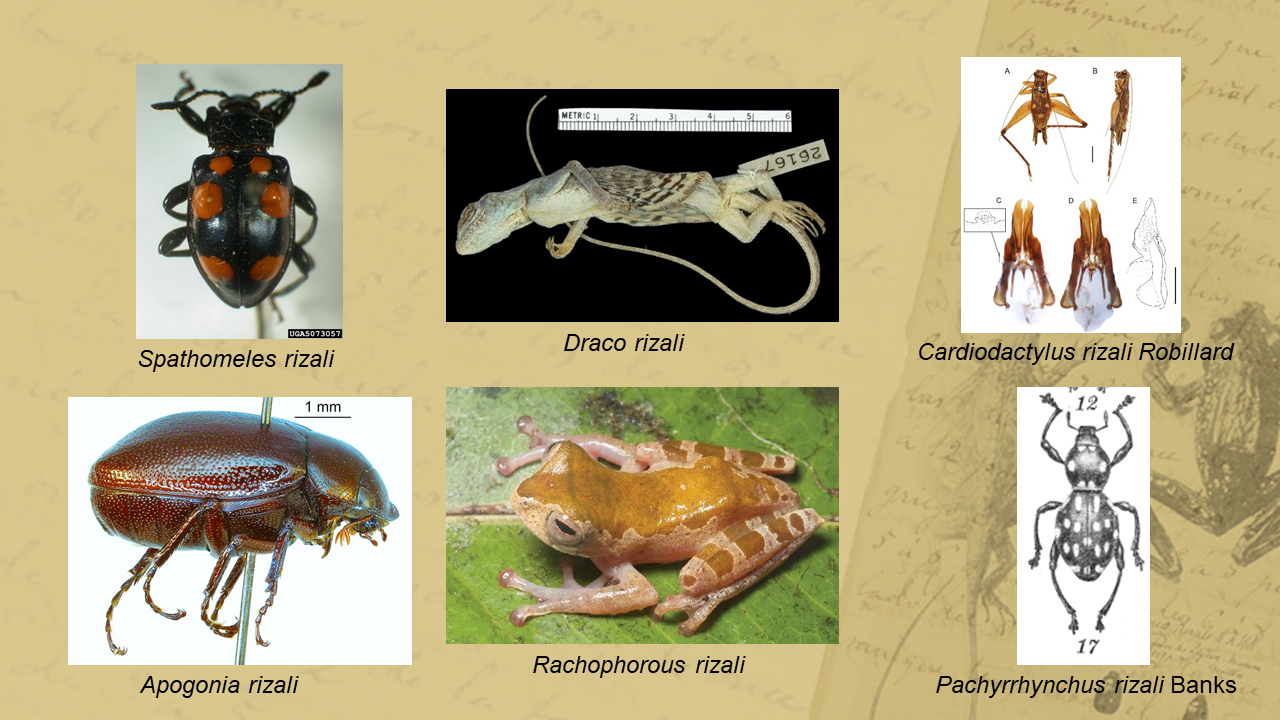
As part of the commemoration of Jose Rizal’s 125th death anniversary, the Philippine Council for Agriculture, Aquatic and Natural Resources Research and Development under the Department of Science and Technology (DOST-PCAARRD) conducted a virtual scientific conference featuring the life and works of our national hero as a naturalist.
This scientific conference aims to present the contributions of Jose Rizal to science by featuring his study on the different species he discovered and other species named after him. The conference also hopes to raise awareness on the importance of conserving our natural resources and the recent discoveries that lie within the country’s diverse biodiversity. It was attended by over 260 Facebook live viewers, including media partners from Eagle Broadcasting Corporation.
The featured topics and respective speakers at the forum were: “Foundations of Jose Rizal as a Naturalist” and “Dapitan Exile: Rizal a Naturalist in Practice Part I (vertebrates)” by Dr. Juan Carlos T. Gonzalez from the University of the Philippines Los Banos – Museum of Natural History (UPLB-MNH) and “Dapitan Exile: Rizal a Naturalist in Practice Part II (invertebrates)” and “Inspired by Rizal: species named in his honor” by Dr. Ireneo L. Lit, Jr., also from UPLB-MNH
Some of the species named after Rizal were the Draco rizali, a species of flying dragon. This peculiar lizard has extended wing-like ribs that enable it to glide across distances of up to nine meters. Another is the Rachophorous rizali also known as the harlequin tree frog. This is an orange-brown amphibian with white, yellow, or blue spots.
He also discovered the Apogonia rizali, a rare kind of small beetle that grows to about an inch long when fully mature. This is the only species Rizal discovered whose name has been retained and is still widely used. Another beetle discovered was the Spathomeles rizali, also known as the handsome fungus beetle, which was reported as one of the many specimens Rizal sent to Germany for identification.

The speakers also discussed the Cardiodactylus rizali Robillard, a cricket named in honor of Rizal. Another is the Pachyrrhynchus rizali Banks, a type of weevil also named in honor of Rizal.
DOST Secretary Fortunato T. Dela Peña, DOST Undersecretary for R&D Rowena Cristina L. Guevara, and UPLB-MNH Director Marian P. De Leon underlined their support for the virtual event by giving inspiring messages. DOST-PCAARRD Executive Director Reynaldo V. Ebora also showed his support in the virtual event. According to Ebora, this scientific conference is a suitable venue for disseminating knowledge, discussing issues/problems, and sharing insights on our biodiversity and the resources that the Council continuously provides.
Rizal’s discoveries inspired many researchers to study nature and biodiversity. Key species cited in the virtual presentations are important in today’s R&D initiatives. With the new discoveries, we can say that biodiversity study is very much relevant to this date (Eirene Grace Z. Arcayos, DOST-PCAARRD S&T Media Services).
